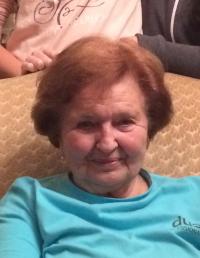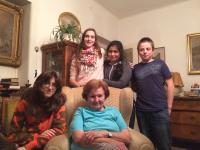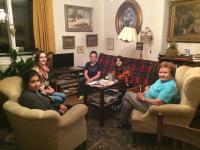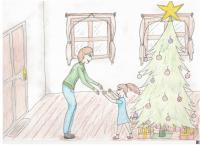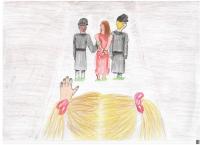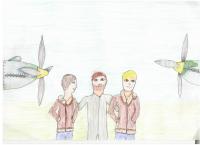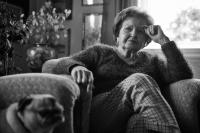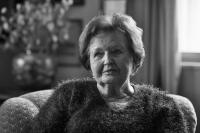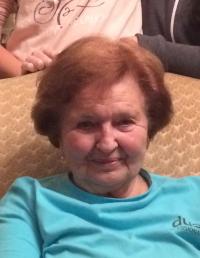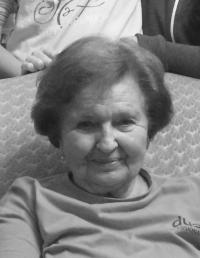My parents and I became estranged because of the war

Stáhnout obrázek
Věra Čechová, née Fleischerová, was born on the 18th of June 1934 in Prostějov. Her father Miloš Fleischer worked as a personal pilot for the director of the Vítkovice ironworks, later he worked for the Československá letecká společnost (Czechoslovak Aviation Company). Following Germany‘s occupation of Czechoslovakia in March 1939 he went abroad to fight for his country‘s freedom. First he escaped to Poland and after it was occupied he and other Czechoslovak soldiers were imprisoned in the Soviet internment camp in Oránky. From there he eventually got to England in 1941. Since his health was horrible at the time he first had to recover in a Red Cross field hospital led by Hana Benešová. Later he joined No 311 Czechoslovak Bomber Squadron Royal Air Force and participated in the fighting. Because of his involvement abroad the Protectorate authorities confiscated the Fleischer family‘s flat and Věra‘s mother was repeatedly interrogated and arrested by the Gestapo. From 1942 to 1944 she was detained in a prison in Olomouc and in an internment camp in Svatobořice. Meanwhile, Věra and her younger sister Libuše were being cared for by their grandmother and aunts in Prostějov. When their father came home in June 1945 the family moved to Prague where Miloš Fleischer worked for the Czechoslovak Airlines. Following the communist coup d‘état he was fired for being a western pilot and sent to a labour camp in Kladno. The regime made it impossible for Věra to study. In 1951 the labour office placed her into the ČKD Stalingrad company where she performed administrative work. In 1956 she married Jiří Čech and they had two children with whom Věra stayed at home. Afterwards she got a job in the editorial office of the Československé pohostinství magazine. From there she went to work for the Balnea company. At age 52 she was awarded disability pension. She lives in Prague 6.
